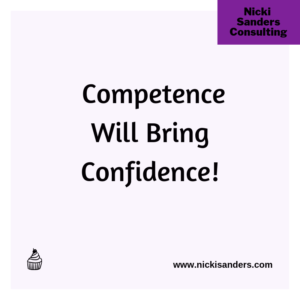Confidence Is Key to Overcoming Gender Bias at Work
By Carlyann Edwards
Women face a number of challenges in the workplace. One of the most prevelant is overcoming confidence issues brought on by both internal and external perceptions and biases. Sexism in the workplace persists, and it has a direct impact on company culture.
According to an article in Fast Company, behavioral evidence compiled over the past two decades suggests workplace gender bias still exists in ways many people don’t realize, particularly for women in male-dominated professions. Gendered stereotypes — for instance, the idea that women are naturally caring, warm and emotional, while men are decisive, rational and objective — are so embedded in our culture that people often subscribe to them without realizing it.
In the Fast Company article, author Eric Jaffe writes that women who do break through and claim a traditionally male position are seen to have violated their prescribed norms. Here’s where the woman who “should be” compassionate acts forcefully, and instead of being called decisive, she is labeled as “brusque” or “uncaring.”
The article went on to describe research that supports this subtle bias: Women who succeed in male domains are disliked, women who promote themselves are less hirable, women who negotiate for higher pay are penalized and women who express angerare given lower status.
Building confidence
When women are outnumbered in the workplace, they often lack the confidence to speak up because they believe that their opinion will not be valued or heard, said Shelley Zalis, founder and CEO of The Female Quotient and the creator of The Girls’ Lounge, a global organization working toward women’s workplace equality. But it’s that very confidence that will help women succeed in their careers, she said.
“The best ingredient for personal success is confidence,” Zalis said. “I encourage women to be confident because women bring an invaluable mindset to the table.”
So how can women be strong and stand up for themselves? They can take ownership of their ideas and consider how their co-workers perceive them, especially in business meetings, said Jill Flynn, partner at leadership consulting firm Flynn Heath Holt.
“Meetings are so important because they’re the corporate stage,” Flynn said, adding that people either contribute and brand themselves in meetings, or fail to do so.
Flynn noted that strong, “muscular” language can help boost women’s confidence. Instead of saying, “How about we think about doing this?” say, “I suggest we do this,” she said.
And it’s time to stop apologizing: “We don’t know why we apologize when we’re not sorry,” Flynn said.
Fighting back against gender bias
If someone is not aware of their biased actions, bring it to their attention, Zalis said.
“First, call them out privately and discuss how their actions are impacting the organization’s culture,” she advised. “Then, [suggest] systemic changes because obviously the current [rules] are not working. Sometimes, these rules are not in a textbook and require a realistic situation to uncover the hidden challenges.”
Zalis noted that the best way to show confidence is to discover what makes you unique and then balance your strengths with the others around you, including the men in your workplace.
“Not only should women support other women, but we must include men in the conversation,” she said. “Transformation will only happen if we do it together.”
Article originally appeared on Business News Daily.
